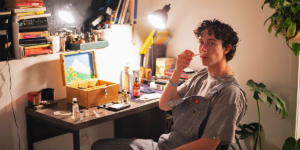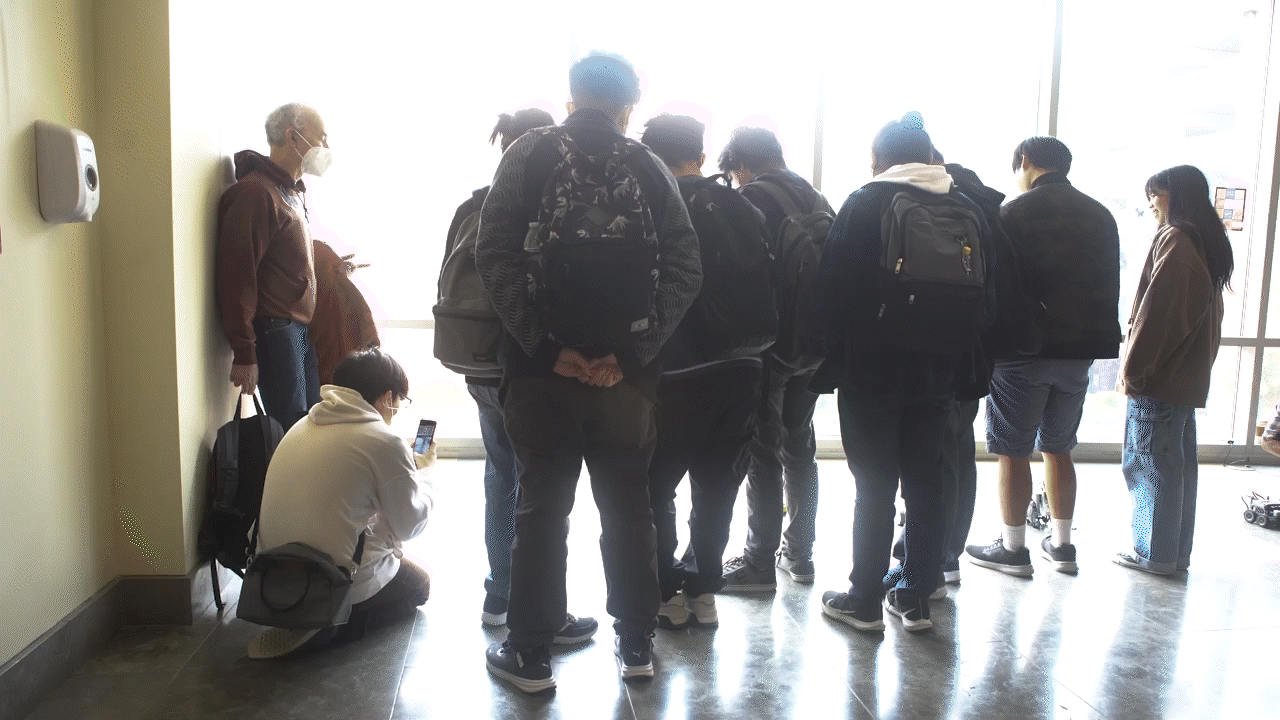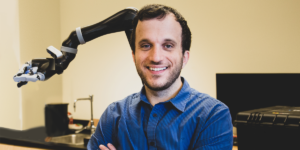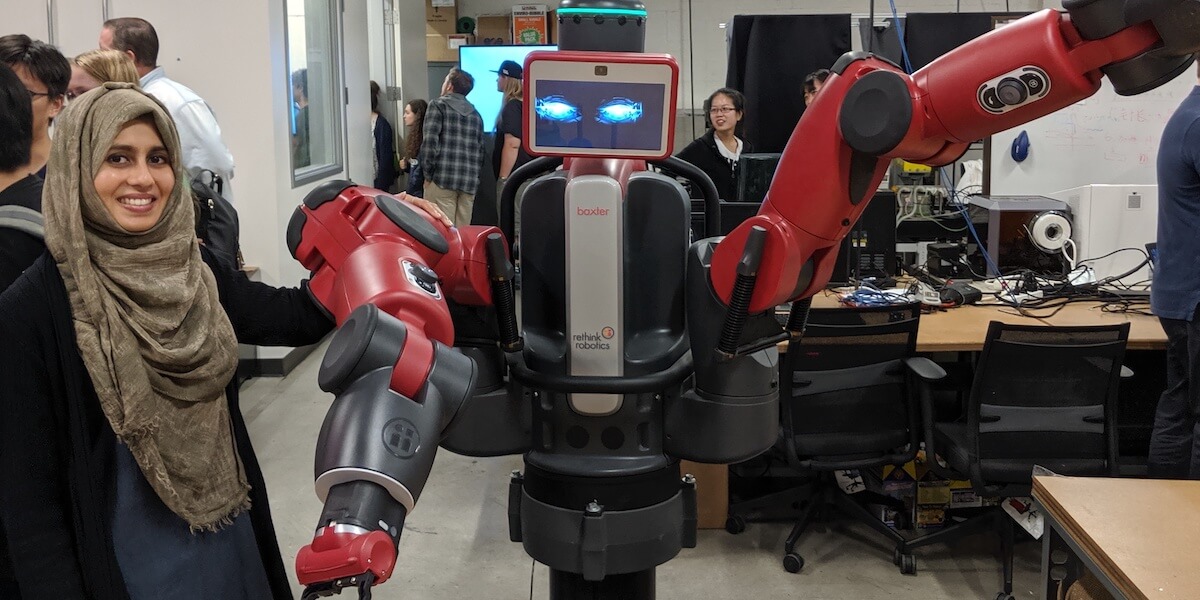
USC Viterbi Ph.D. student Sarah Al-Hussaini and Baxter, a human-safe robot robot designed to complete complicated, multistep processes. PHOTO/Akash Sareen.
On October 4, at USC Viterbi’s Center for Advanced Manufacturing (CAM), teenagers and advanced manufacturing technologies intersected for an open house, held in conjunction with National Manufacturing Day. Along with industry professionals and USC students, graduate student researchers from the USC Viterbi School of Engineering hosted two buses of high schoolers from McBride High School in Long Beach.
Over 60 high school students engaged in a Q&A discussion about the importance of CAM’s work and the difference between that work and less advanced production with SK Gupta, Smith International Professor in Mechanical Engineering at USC Viterbi and the director of CAM, before exploring the open house. Out in the lab, they could approach the student researchers and ask questions about their projects and the advanced technologies–for example metal 3-D printers and automated, composite-laying systems–used to create them.
There, they learned about projects like Baxter, a human-safe robot designed to follow out complicated, multi-step processes; Robotic Conformal 3-D printing, an advancement in 3-D printing that allows composites to be laid in more complicated forms rather than only in flat sheets; and Robot Part Delivery, systems that allow robots to perform simple tasks for the user completely remotely.
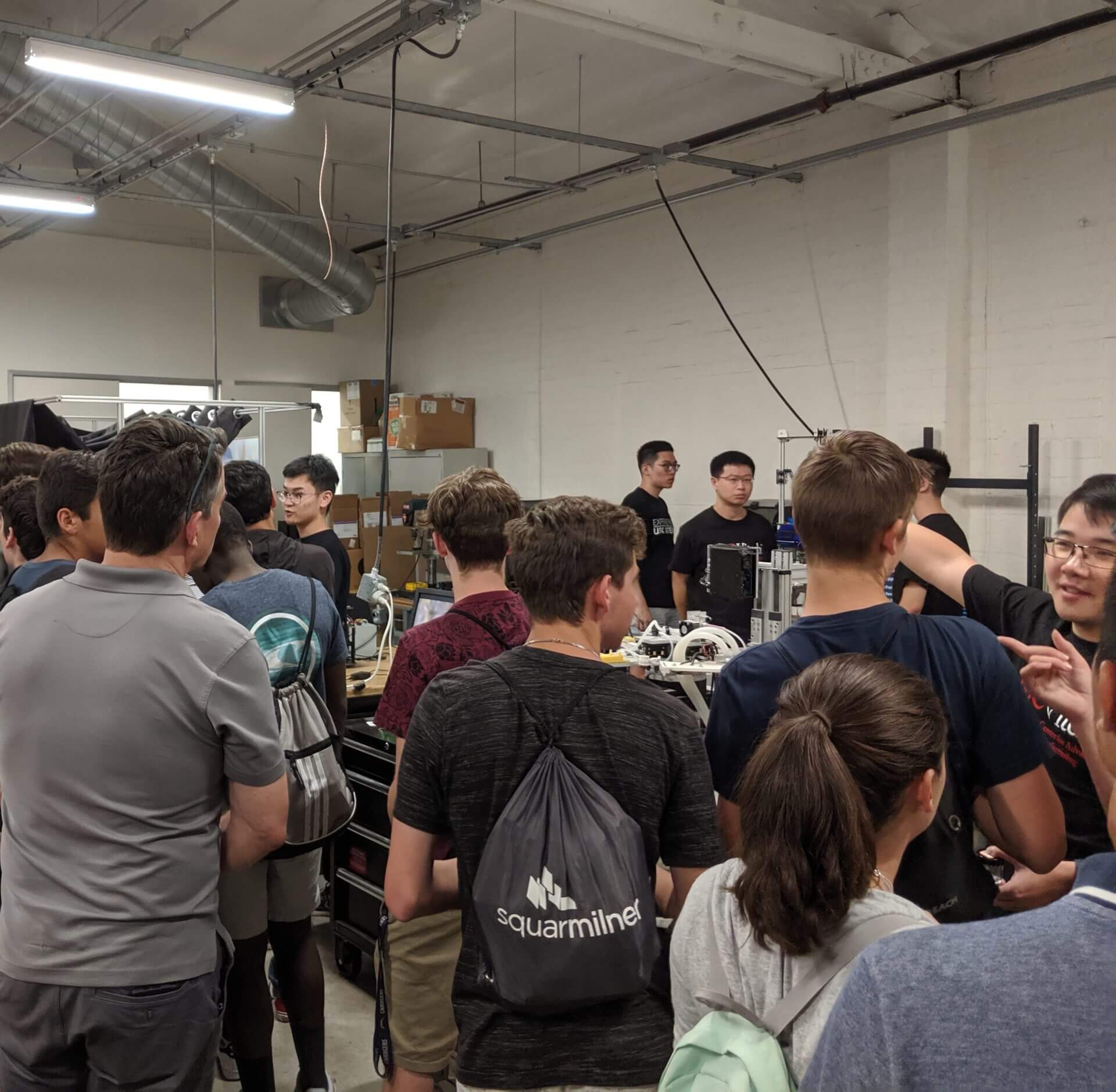
Students from the McBride High School in Long Beach, CA visit the USC Viterbi Center for Advanced Manufacturing. Photo/ Akash Sareen.
For these students, who participate in a four-year engineering track at their high school where they take manufacturing and design classes and complete projects in their machine shop, seeing first hand the work being done in the industry is vital. Their school program is designed to prepare them to pursue higher education and eventually employment in this industry. So although they did have experience working with some of the machines CAM houses, seeing them in use at industry-level standards and as solutions to real-world problems is something that can’t be taught in a classroom.
When asked about the reactions of the young visitors, Katie Mills, co-director of the of K-12 STEM Center, responded, “It was difficult to know who was more excited about seeing CAM, the teachers or the students. They had the opportunity for detailed conversations with the center’s graduate students and faculty about their research, and they mingled with industry professionals as curious as they were to see the demonstrations of recent innovations.”
When engineering programs are so limited in high schools, such outreach can be the only exposure teenagers have to what it really means to be an engineer. For the students of McBride High School, coming face-to-face with engineering students and the projects they’ve spent years on, allowed a stronger grasp on the potential of engineering, while also demonstrating the range of projects they could pursue in their own research, and in the workforce.
As Alek Kanyuck, manager of CAM, put it, this kind of outreach is all about aspiration. “It’s so important for them to see what’s possible beyond just a $1500 plastic 3-D Printer.”
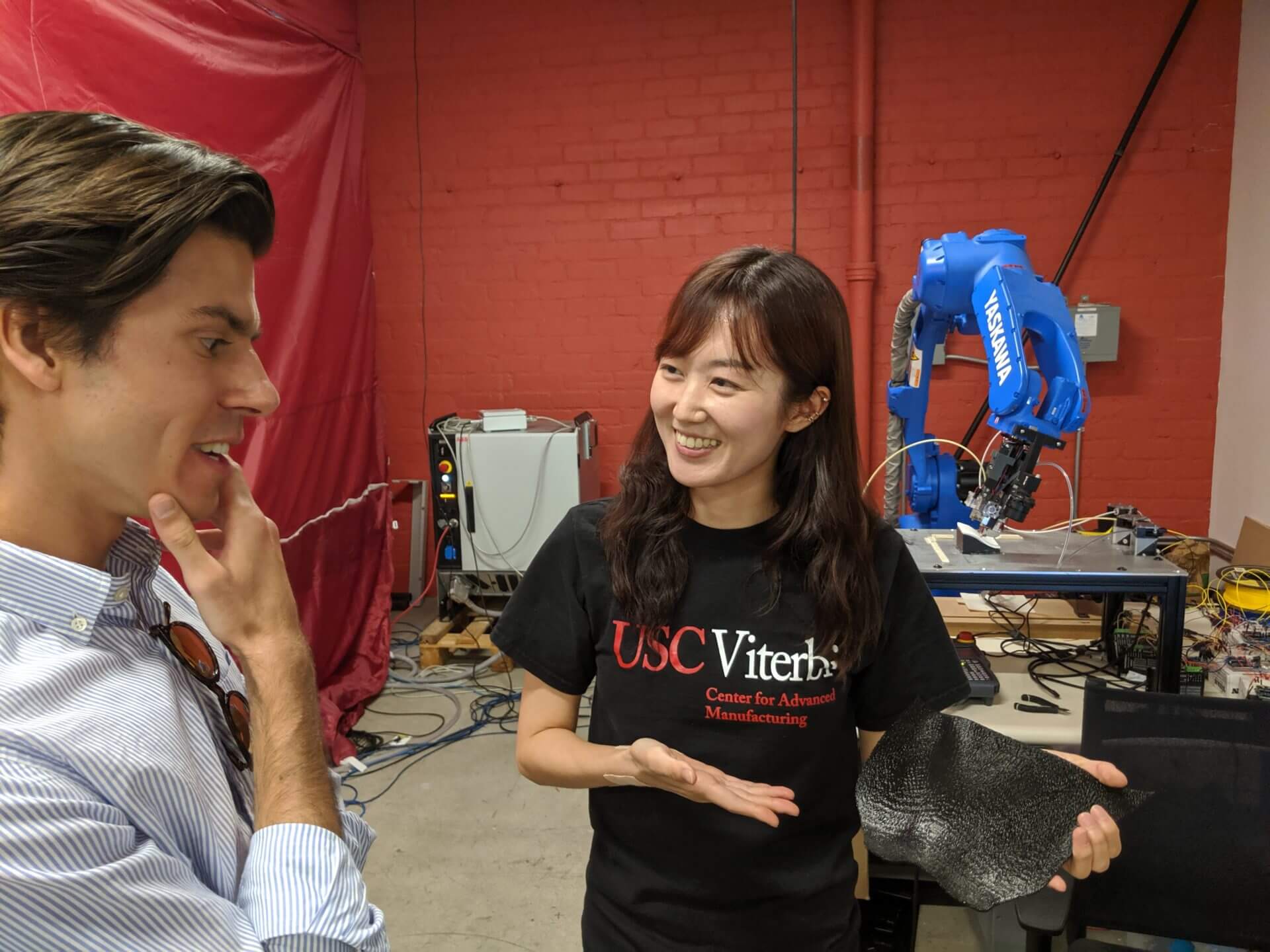
USC Viterbi Ph.D. student Stella Yoon demonstrates the results of robotic conformal 3-D printing. Photo/Akash Sareen.
CAM was founded with the goals of advancing opportunities in manufacturing and providing the USC community with access to state of the art manufacturing tools.
CAM is a partner in LA MADE 4.0, a joint initiative between the City of Los Angeles, Goodwill Southern California, the UCLA-based Clean Energy Smart Manufacturing Innovation Institute (CESMII), and the USC Viterbi School of Engineering that will prepare the city’s workforce for new technologies and provide middle-class career opportunities to Angelenos interested in manufacturing. The initiative launches Saturday, October 19.
Published on October 18th, 2019
Last updated on October 18th, 2019




